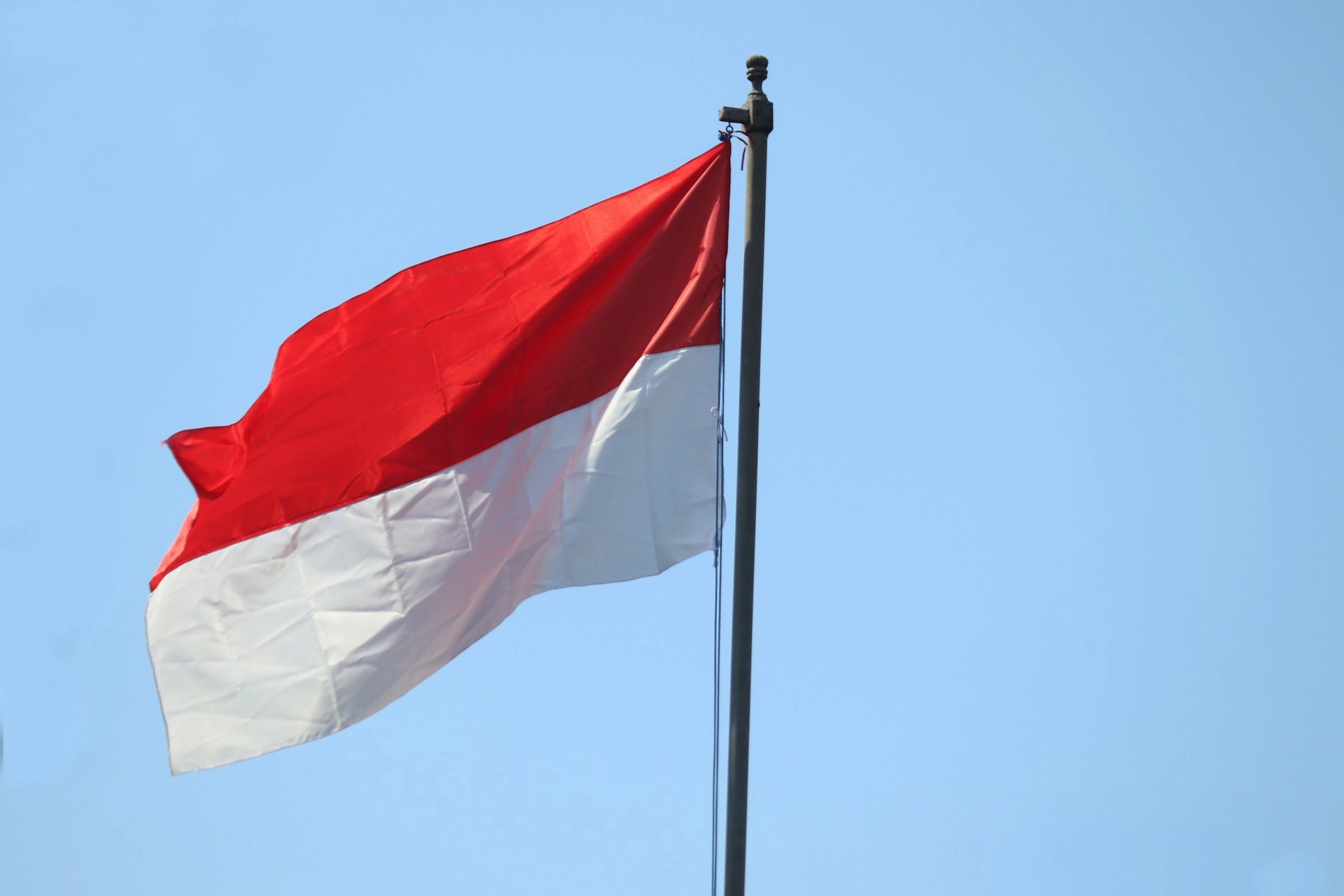
Publications Taxation Of Cross-Border Mergers And Acquisitions: Indonesia 2016
- Publications
Taxation Of Cross-Border Mergers And Acquisitions: Indonesia 2016
- Christopher Kummer

SHARE:
Introduction
As the most populous country and largest economy in Southeast Asia, Indonesia has long been attractive to investors. Recent tax legislation changes and the expansion of incentives should further stimulate investment.
However, certain restrictions on investment remain. Some sectors are closed to foreign investors. These are published in the negative investment list, which was most recently updated in April 2014. The list designates various restrictions and prohibitions for certain business sectors, such as sectors where small and medium-sized businesses are protected from larger competitors. The Indonesian government is still discussing which sectors should be opened or closed to foreign investment.
Previously, Indonesian investment law allowed foreign companies and individuals to invest only in certain business sectors by establishing joint venture companies with local partners. The foreign investor could set up a wholly owned company but was required to transfer some of its shares to a local partner within 15 years from the commencement of commercial operations. In many sectors, this restriction has been relaxed to allow foreign investment in a wholly owned company, with no requirement to sell shares to a local partner subsequently.
Applications for foreign investment require approval from the Investment Coordinating Board (BKPM), which evaluates investment applications to determine the adequacy of the proposed investment based on the project’s economic feasibility. Foreign companies and foreign individuals may also acquire shares in an existing local company, provided its line of business is open to foreign investment.
Under Indonesian generally accepted accounting principles (GAAP), most combinations are accounted for as acquisitions. Merger accounting is applied in
only limited circumstances. Merger accounting is not allowed under International Financial Reporting Standards (IFRS); all business combinations must be treated as acquisitions. However, Indonesian GAAP currently allows the use of the uniting-of-interests method in certain rare circumstances. Indonesia has adopted IFRS but currently follows the 2007 version. The more recent IFRS will be implemented in Indonesia at a later date.
Recent developments
The following summary of Indonesian tax developments is based on current tax legislation and guidance applicable in 2015.
In 2008, regulations and related guidance were introduced to help the Indonesian Tax Office combat what it perceived to be a number of mergers motivated solely to obtain tax advantages. The provisions primarily aim to restrict tax relief and tighten documentation requirements for the transfer of assets in a merger, consolidation or expansion.
The regulations impose more conditions on tax-neutral transfers of assets. The seller and the acquiring company must pass a business purpose test to ensure the motivation of the merger or expansion is to create strong business links or bolster the capital structure, rather than to avoid tax. Where the transfer occurs within the context of a business expansion (separation of a company into two or more entities), the new regulations only allow the transfer of assets to be recorded at book value if the transferor and/or acquirer are planning an initial public offering (IPO). If an application for an IPO is not submitted to the stock exchange within 1 year of the transfer, the relief may be clawed back.
A notable absence from the new regulations is the entitlement of a taxpayer to transfer losses. Previously, tax relief for pre-acquisition losses could be transferred to the purchaser under certain conditions. Under the current regulations, losses remain with the entity incurring them. If the acquired entity ceases to exist or becomes dormant following a business acquisition, the tax losses within that entity become unavailable for relief against any future profits. Further, the surviving entity is required to be either loss-free or the entity with the lowest losses among the merging entities.
Where an application to transfer assets at book value receives the required approval from the Director General of Taxation (DGT), the acquiring company should assume the asset history of the transferor (i.e. the remaining useful life and depreciation method should be recorded and applied by the acquiring company). Such an application is required within 6 months of the date of transfer. Approval is only granted where both transferor and transferee have no outstanding tax assessments or unpaid tax balances. The DGT is required to respond within 1 month of the application. A number of other conditions must be satisfied. If they are not met, the transfer of assets is assessed at market value. It is, therefore, strongly recommended to seek advice when planning an acquisition to ensure the transaction qualifies for relief.
Indonesia’s amended value added tax (VAT) legislation took effect as of 1 April 2010. Among recent amendments is a new provision on business combinations that should allow the transfer of the trade and assets of a business to be treated as outside the scope of Indonesian VAT (subject to certain conditions). Under previous regulations, the transfer of taxable goods in the context of an acquisition/merger was subject to VAT at the standard rate of 10 percent.
Asset purchase or share purchase
Acquisitions in Indonesia often take the form of a purchase of the shares of a company, as opposed to a trade and asset acquisition. The choice is influenced by both commercial and tax considerations. The sale of shares listed on the Indonesian stock exchange is subject to a final tax at 0.1 percent of gross proceeds. The transfer of titles to land and buildings under an asset purchase subjects the seller to a 5 percent final income tax and subjects the acquirer to a 5 percent transfer of title tax (duty). Under an approved merger or consolidation, there may be partial (50 percent) relief from the 5 percent transfer of title tax and full relief from the 5 percent income tax on land and buildings.
However, there are also a number of benefits for the purchaser in a trade and asset acquisition. Under Indonesian tax audit rules, the inheritance of the tax history and liabilities under a share transfer carries significant risk. Further, amortization of goodwill arising on the acquisition of the trade and assets of a business should be tax-deductible.
The sale of unlisted shares held by a foreign shareholder in an Indonesian company is subject to a final tax of 5 percent of gross proceeds, unless protected by a tax treaty.
Purchase of assets
A purchase of assets usually results in an increase in the base cost of those assets for the purposes of both corporate income tax (on the taxable gain) and tax depreciation. The seller is subject to corporate income tax on the gain in asset value at the current rate of 25 percent. Prior tax liabilities remain with the company and are not transferred with the assets.
Purchase price
For tax purposes, it is necessary to apportion the total consideration among the assets acquired. There are no specific rules for such an apportionment, but the acquirer should be aware that the tax office will scrutinize the chosen method.
Goodwill
As with IFRS, under Indonesian GAAP, acquired assets and liabilities (business acquisition) are measured at fair value on the date of acquisition. Goodwill arises on acquisition to the extent that the purchase price exceeds the aggregate of the fair values of the assets, liabilities and contingent liabilities assumed (except for transactions under common control). Such acquired goodwill may be amortized for tax purposes generally for a period of not less than 5 years and up to a maximum of 20 years where a longer period is justifiable under specified conditions. Goodwill should be evaluated for impairment at each balance sheet date.
The acquisition price of goodwill (with a useful life of more than 1 year) should be amortized consistently using either the straight-line or declining-balance method over the useful life of the asset, following the rates of depreciation for tangible assets.
Depreciation
Depreciation is an allowable deduction in determining taxable income. ’Depreciable property’ is defined as tangible property that is owned and used in the business or owned for the production, recovery and securing of income and that has a useful life of more than 1 year. Land is not depreciable, except in certain industries.
Depreciable assets other than buildings and construction are classified by tax regulations into one of four asset categories. Buildings and construction are divided into permanent and non-permanent structures. In practice, the regulations define ‘useful life’, irrespective of the taxpayer’s own assessment of the asset’s life. Where the category of assets is not specified in the regulations, the asset category may be depreciated based on the useful life. Buildings and other immovable property may only be depreciated using the straight-line method.
For all assets other than buildings and other immovable property, the company can choose to calculate depreciation using either the declining-balance or straight-line method. As outlined above, an application may be made to transfer assets at book value, subject to passing the ‘business purpose’ test. Where such an application receives the required approval from the DGT, the acquiring company should assume the asset history of the transferor (i.e. the remaining useful life and depreciation method should be recorded and applied by the acquiring company).
Tax attributes
Under a trade and asset sale, the gain on sale proceeds, including any capital gain, is taxed as part of normal income at the corporate income tax rate of 25 percent.
Value added tax (VAT)
Under amended VAT legislation that came into force on 1 April 2010, approved business mergers or consolidations are outside the scope of Indonesian VAT, subject to certain conditions. Professional advice should be sought regarding the applicability of Indonesian VAT to any future transfer of assets. Transfers of the trade and assets of a business outside of an approved merger or consolidation continue to be subject to Indonesian VAT at the standard rate of 10 percent.
Transfer taxes
The transfer of title to land and buildings is subject to a 5 percent non-recoverable title transfer tax (duty). This may be subject to partial (50 percent) relief under an approved merger or consolidation. In addition, a nominal stamp duty tax of 6,000 Indonesian rupiah (IDR) (approximately less than 0.50 US dollars (USD)) is charged on certain legal documents, such as receipts, agreements and powers of attorney.
Purchase of shares
Tax indemnities and warranties
In a share acquisition, the purchaser takes over the target company together with all related liabilities and unpaid taxes. Therefore, the purchaser needs more extensive indemnities and warranties than where the target’s trade and assets are acquired.
Under Indonesian tax legislation, the tax office may conduct an audit within 5 years from the filing date of any tax return. The tax office may re-open a closed tax audit where new documentation or information becomes available.
By international standards, the Indonesian tax audit process is quite aggressive. In a share transaction, this increases the purchaser’s risk. Professional advice is recommended to ensure the appropriate indemnities and warranties are received and/or the commercial implications are fully considered.
Because of the tax risks outlined above, it is common for a purchaser in the Indonesian market to conduct detailed tax due diligence. This process should not only highlight the inherent tax risk but also should provide an agreed tax audit history that can form the basis of the agreed tax indemnities and warranties.
Tax losses
Generally, tax losses may be carried forward for a maximum of 5 years or, for certain business categories, 10 years. Under the new regulations for business mergers, consolidations and expansions, carried forward losses of an Indonesian target cannot be offset against future losses of the acquiring company or merged entity. Such losses expire at the time of acquisition.
Pre-sale dividend
Dividends paid to a resident corporate shareholder holding more than 25 percent of the issued share capital of a company are tax-free. Dividends paid to resident individuals are subject to final tax at 10 percent. As any gain realized on the sale of a business is subject to corporate income tax at 25 percent, a more tax-efficient structure might be achieved by issuing a pre-sale dividend.
Transfer taxes
There is no stamp duty in Indonesia other than the nominal IDR6,000 charge on certain documents. However, the following income taxes and duties apply in certain circumstances.
The sale of shares listed on the Indonesian stock exchange is subject to a final tax at a rate of 0.1 percent of gross proceeds (plus an additional 0.5 percent for founder shares on the share value at the time of the IPO). Certain types of venture capital companies are not required to pay tax on capital gains in certain circumstances.
There is also a final 5 percent tax on gross proceeds from the sale of unlisted shares held by a foreign shareholder in an Indonesian company, unless a tax treaty stipulates otherwise.
Tax clearances
No specific tax clearances are required for acquisitions, except for the application to transfer assets at net book value.
Approval is also required to achieve a partial exemption from the 5 percent tax on the transfer of title to land and buildings under an approved merger or consolidation.
Under the new VAT legislation that came into force on 1 April 2010, clearance is required to treat a transfer of the trade and assets of a business as outside the scope of VAT. KPMG in Indonesia recommends seeking advice on the prevailing legislation before entering such transactions.
Choice of acquisition vehicle
Indonesian corporate law permits foreign companies to invest in a business sector open to foreign investment, by establishing either a joint venture company with a local partner or a wholly owned company. For a purchase by a foreign entity of the shares or trade and assets of a business, investment approval from the BKPM is required. The target company should not operate within a business sector included on the Negative Investment List.
Type of company for foreign investor
A limited liability (PT) company is the most common form of corporate business entity in Indonesia.
A PT company held by a foreign investor is referred to as a foreign investment (PMA) company.
A foreign investor may establish a new PMA company or convert an existing PT company, provided the company operates in an approved sector. The BKPM evaluates investment applications to determine the adequacy of the proposed investment, based on the project’s economic feasibility.
Foreign parent company
A foreign parent company may acquire shares in an existing local company, provided the local company’s line of business is open to foreign investment. The company format (PMA company) and applicable restrictions are as defined earlier in the report. On exit, a final tax of 5 percent of the gross proceeds applies on the sale of unlisted shares held by a foreign shareholder in an Indonesian company, unless a tax treaty stipulates otherwise.
Dividends and/or interest paid by a local company to the foreign parent are subject to final withholding tax (WHT) of 20 percent, unless a tax treaty stipulates otherwise.
Where a foreign parent company purchases the trade and assets of a business in Indonesia (subject to BKPM approval), this is likely to be deemed a permanent establishment (PE) of the foreign company within Indonesia. Generally, the registered PE of a foreign enterprise is treated as a domestic resident. As such, the domestic WHT rate of 15 percent applies to payments of dividends/interest to the PE. In addition, the PEs of foreign enterprises are subject to 20 percent WHT on their after-tax income unless a reduced treaty rate applies or, in certain cases, the profits are re-invested in Indonesia.
For regulatory purposes, the establishment of a foreign PE is restricted to a limited number of sectors, and approvals from relevant government ministries are required.
Non-resident intermediate holding company
Indonesian regulations to combat tax avoidance through offshoring in tax haven countries include a look-through provision where shares are sold in a company established in a tax haven country that itself holds shares in an Indonesian company. As a result, the sale of a shareholding in a non-resident intermediate holding company may be deemed to be a direct sale of the shares in the Indonesian company and subject to final tax in Indonesia at the rate of 5 percent of the gross proceeds.
Despite these regulations, through careful planning, it may be possible to achieve a non-resident holding structure in a country with an appropriate tax treaty, which may result in lower WHT on dividends/interest and/or a tax-free exit route. The acceptability of such a structure depends on the commercial reality and specifics of the acquisition concerned.
Local branch
Since operating as a PE in Indonesia is restricted to a few specific industries, branch structures for cross-border mergers are rare. PEs of foreign enterprises are subject to 20 percent WHT on their after-tax income unless a reduced treaty rate applies.
There are various types of representative office that may obtain licenses from government authorities. However, they usually are only allowed to perform auxiliary services, such as acting as an intermediary, handling promotional activities and gathering information for a head office abroad. However, KPMG in Indonesia cautions that certain types of representative office are subject to tax in Indonesia. Before establishing a representative office, professional advice is recommended regarding the nature of the license and tax consequences.
Joint venture
A foreign entity may enter into a joint venture through the shared ownership of an Indonesian company with a local partner. The foreign investor cannot create a legal partnership. However, a profit-sharing consortium is permitted for certain sectors and is most common in the construction industry.
There are no additional specific tax considerations for joint ventures beyond those discussed earlier.
Choice of acquisition funding
A purchaser using an Indonesian vehicle needs to decide whether to fund the acquisition with debt or equity. Hybrid instruments are not yet a common feature of Indonesian banking functions. The principal tax advantage of debt is the potential tax-deductibility of interest; dividends are not tax-deductible.
Debt
Broadly, a company’s accounting treatment for interest is followed for tax purposes, as long as it fairly represents the interest and expenses of the company’s loan relationships. Where debt is held through an intercompany loan, the Indonesian tax office should be expected to take a detailed interest in the allocated transfer price. Under recent procedural changes, corporate income tax returns must now include detailed information on related-party transactions, including information on both the amount and method of transfer pricing.
Deductibility of interest
Interest on funds borrowed by a company for the purposes of obtaining, collecting and maintaining income is deductible from gross income, except where the loan is used to invest in other companies for which dividend income is not taxable.
The DGT has the authority to re-determine the amount of interest income and/or interest expense and to reclassify debt as equity in determining taxable income where a taxpayer has a special relationship with another taxpayer. These provisions aim to prevent the taxpayer from reducing tax by charging excessive interest costs (e.g. interest rates in excess of commercial rates) between related parties. Interest-free loans from shareholders are allowed, subject to certain conditions.
Where those conditions are not met, the borrower risks the imposition of deemed interest and WHT obligations.
Withholding tax on debt and methods to reduce or eliminate it
WHT is imposed at 20 percent on various amounts payable to non-residents (including dividends and interest), unless the non-resident has a registered PE in Indonesia, in which case the rates applicable to payments to residents apply. The WHT may be reduced where the foreign resident is exempt or eligible for a reduced WHT rate by virtue of a tax treaty.
In order to qualify for treatment under a relevant tax treaty, non-resident status should be supported with a certificate of domicile (COD) issued by the competent authority of the non-resident’s country of domicile. A specific form is provided for this (DGT-1 for most taxpayers). In addition to details of tax residence, the form requires detailed declarations regarding substance that the recipient is required to positively affirm in order to prove that it is the beneficial owner of the income.
Payments of interest by an Indonesian company to a resident company (including a registered PE of a foreign entity) are subject to WHT at 15 percent.
Checklist for debt funding
- Interest is only deductible where the borrowed funds are used to generate taxable income for the entity.
- The use of Indonesian bank debt may avoid thin capitalization problems.
- Consider whether the level of profitability would enable tax relief for interest payments to be effective.
- Domestic and international payments of interest are subject to 15 percent and 20 percent WHT respectively.
Equity
A purchaser may use equity to fund its acquisition, possibly by issuing shares to the seller in satisfaction of the consideration or by raising funds through a seller placing. Further, the purchaser may wish to capitalize the target after the acquisition. The use of equity, rather than debt, offers less flexibility should the parent subsequently wish to recover the funds it has injected, for example, because capital reductions may be troublesome and there may not be a market for the shares at the price required. However, equity may be more appropriate where the potential target is loss-making as there would be no immediate tax benefit from interest deductions.
Other considerations
Thin capitalization
Where a special relationship exists, interest may be disallowed as a deduction if the charges are considered in excess of commercial rates. Interest-free loans from shareholders that do not meet certain conditions may create a risk of interest being deemed, resulting in WHT obligations for the borrower.
In 2015, the Minister of Finance has issued thin capitalization rules regarding finance expenses that can be deducted when calculating corporate income tax payable, setting a maximum debt-to-equity ratio (DER) of 4:1, as from fiscal year 2016.
Specific provisions define ‘debt’ and ‘equity’ for the DER calculation:
Under these provisions, debt:
- is the average of month end outstanding debt balances in a tax/fiscal year or part of a fiscal year
- includes short-term and long-term debt and interest-bearing trade payables (KPMG in Indonesia believes the definition includes interest bearing loans from related parties)
- excludes non-interest bearing related party loans.
Equity
- is the average of month-end equity balances in a fiscal year or part of a fiscal year, determined in accordance with Indonesian Financial Accounting Standards, plus
- the average of month end outstanding debt balances in a tax/fiscal year or part of a fiscal year of non-interest bearing related party loans.
The following corporate taxpayers are exempt from the thin capitalization rules:
- banks, including the Bank of Indonesia
- financial institutions/leasing companies that engage in providing funds and/or capital goods
- Insurance and reinsurance companies, including Sharia-compliant insurance and reinsurance companies
- oil and gas and mining companies under a contract of work, production-sharing contract and other agreements with the government that have specific DER provisions (if such provisions do not exist, the taxpayer is not exempt from the 4:1 DER requirement),
- companies subject to a final tax regime
- companies engaged in infrastructure businesses.
Group relief/consolidation
There are no provisions for grouping or consolidation under Indonesian tax law. Under the regulations issued in 2008, losses may not be transferred to a separate entity on a merger.
Transfer pricing
Any transaction determined to be non-arm’s length may be subject to adjustment by the DGT. Such transactions include unreasonable purchase/sales prices, unreasonable interest rates applied to intercompany loans, and purchases of a company’s assets by shareholders (owners) or parties having a special relationship at prices that are higher or lower than market prices. A special relationship includes common ownership or control (direct or indirect) of 25 percent or more of the capital of another party and a family relationship. The transfer pricing rules apply to certain domestic and international transactions.
Among many recent procedural changes to corporate income tax return filing requirements, additional requirements are imposed on the format of disclosures for related-party transactions. These changes are in line the Indonesian Tax Office’s increasing focus on transfer pricing requirements since 2007. Regulations issued in 2010 and 2011 further expand on this focus and require documentation that is largely in line with that described in Organisation for Economic Co-operation and Development (OECD) guidelines is available for submission to the DGT. Recently, the tax office has been taking an aggressive approach to transfer pricing issues.
Foreign investments of a local target company
Indonesia’s controlled foreign company (CFC) rules define a CFC as a foreign unlisted corporation in which Indonesian resident individual or corporate shareholders, either individually or as a group, hold 50 percent or more of the total paid-in capital. Listed corporations are not CFCs. The Indonesian shareholders are deemed to receive dividends within 4 months of filing the tax return, or 7 months after the end of the fiscal year where there is no obligation to file an annual tax return or there is no specific filing deadline in the CFC’s country of residence.
Comparison of asset and share purchases
Advantages of asset purchases
- Purchaser does not acquire the tax history and liabilities of the target company.
- Amortization of acquired goodwill should be deductible for tax purposes.
- Under the amended VAT legislation, the transfer of the trade and assets of a business in an approved merger or consolidation is outside the scope of VAT as of 1 April 2010.
- Under certain conditions, the acquired assets may be transferred at net book value, thereby achieving a tax-neutral transfer.
Disadvantages of asset purchases
- The transfer of title to land and buildings could be subject to 5 percent final income tax and 5 percent title transfer tax (duty).
- Under current VAT legislation, the transfer of the trade and assets of a business is subject to VAT at the standard rate of 10 percent.
Advantages of share purchases
- Likely more attractive to the seller, commercially and from a tax perspective, so the price may be lower.
- Usually a lower capital outlay (purchase of net assets only).
- Sales of shares listed on the Indonesian stock market are subject to a final tax rate of only 0.1 percent of gross proceeds.
- Sales of shares are exempt from VAT.
Disadvantages of share purchases
- Purchaser acquires the tax history and liabilities of the target company.
- Sales of unlisted shares by a foreign company are subject to a final tax of 5 percent of the gross proceeds unless a tax treaty stipulates otherwise. Consequently, the seller is liable for the tax even where the shares are sold at a loss.
TAGS:


Stay up to date with M&A news!
Subscribe to our newsletter


